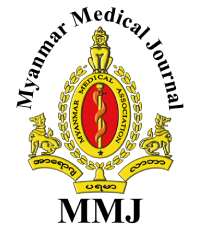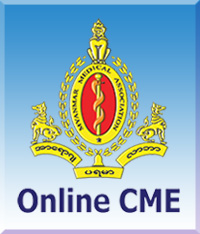MMA Malaria (QDSTM) Project
MORE DETAIL : http://www.mmamalaria.com/
Myanmar Medical Association-Quality Diagnosis and Standard Treatment of Malaria (QDSTM) Project
| Funding Agency | GFATM, RAI and UMB/GATE |
| Brief History | QDSTM Project was born under the empowerment of MOH,cooperating with WHO and VBDC in 2000. |
| Funding for Control activities: | |
| Feb: to Dec: 2006 — GFATM Round 3/ PR—UNDP | |
| Jan: to Jun: 2007 — Bridge fund/3DF through WHO | |
| Sep: 2007 to Aug: 2011 — 3DF through WHO | |
| Sep: 2011 to Dec: 2014 — GFATM Roud 9 | |
| Jan: 2015 – Dec: 2017 — NFM/ GFATM | |
| Funding for Containment activities (MARC/RAI) | |
| July 2011 to Dec: 2012 — 3DF | |
| Jan: 2013 to Mar: 2014 — 3MDG | |
| April 2014 to Dec: 2017 — RAI/GFATM | |
| Funding for Malaria research “Evidence and action for targeted parasite elimination in Myanmar” | |
| Jan: 2016 to Sept: 2016 — UMB/GATE |
Project Objective
The main purpose is to ensure that malaria cases received quality assured early diagnosis and standard treatment in accordance with national malaria treatment guidelines and thus to halt ransmission of malaria.
Project strategy
By improving early access to quality diagnosis and effective/ standard treatment of malaria (EDET – Early Diagnosis and Effective Treatment) through;
- Trained Quality General Practitioners (QGPs)
- Project staff of Fixed/Mobile Clinics
- Trained Voluntary Health Villagers (VHVs) to reduce onward transmission of malaria
Main activities of QDSTM Project
- Malaria control activities with NFM/GFATM
- Recruitment of private Quality General Practitioners to provide quality diagnosis and standard treatment of malaria.
- Established Fixed and Mobile clinics to improve accessibility of quality diagnosis and standard treatment of malaria for the people living in remote areas.
- Trained and support Village Health Volunteers (Recruitment and Refresher training) in outreached villages to deliver EDET.
- Health Education Sessions on prevention and transmission of malaria.
- Developed promotional BCC materials (Pamphlets, Manuals, Flowcharts, Videos,Calendars, Posters etc.)
- Operational research with DMR.
- Containment activities with RAI/GFATM
- Established 5 sub-offices.
- Active Case Finding through Mobile Clinics in villages.
- Trained Village Health Volunteers (Recruitment and Refresher training) in outreached villages.
- Health Education Sessions on prevention and transmission of malaria.
- DOT on confirmed falciparium malaria cases.
- Fully case investigation on P.f (+) cases.
- Re-training of health care providers (CME) in public and private sector on malaria prevention and control with emphasis on malaria case management.
- Vendor Education Sessions.
- Malaria Indicator Survey with Malaria- Country wise malaria indicator survey completed in October 2015.
- Country wise malaria indicator survey completed in October 2015.
- Evidence and action for malaria elimination with UMB/GATE foundation
- Empowerment of project staff
- Team building training.
- PCM training
- TOT training
- TQM training
- Internal training (technical and operational)
- International training on malaria case management (Mahidol University, WHO)
Area Coverage
| Sr.No. | Coverage | NFM | RAI | UMB | Total | Remarks |
|---|---|---|---|---|---|---|
| 1 | Township covered | 132 | 5 | 2 | 135 | 4 tsps: overlapped |
| 2 | Total no. of QGPs | 434 | – | – | 434 | |
| 3 | Fixed and Mobile Clinics/Sub-offices | 14 | 5 | – | 19 | |
| 4 | Village Health Volunteers | 448 | 148 | – | 596 | |
| 5 | Village covered | 1215 | 452 | 30 | 596 | 1697 |
Population coverage = Total population covered 23,209,749 in 135 Tsps: 14 States and Regions.
Quality Diagnosis and Standard Treatment of Malaria”
(QDSTM) Project
MMA-Malaria (QDSTM) (2023) – Trim






































